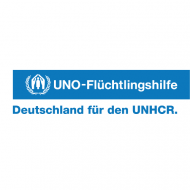Kurzthese
[Partnersession]
Beschreibung
The discussions in the global North are often dominated by concerns of data overload and data privacy. This debate is conveniently overlooking the fact that some people do not have an identity at all and would benefit from having access to digital services. A balanced approach has to be found that assures every individual of a recognized identity opening the doors of empowerment and digital inclusion, which gives secure access to rights and services to all. The linkages between legal and digital identity, have to be re-explored so that digital identity can be a way to obtain a legal identity for those who need it. At the same time, this should enable every actor in the ecosystem to improve efficiency and effectiveness in their relationship with each other leading to a trusted system that is maintained with equanimity from everyone. Are user-centric and even self-sovereign ID systems realistic? Can every citizen be sufficiently motivated and incentivized to engage in such a solution without prioritizing short term revenue and/or control interests, and, thus, limit or balance the power of institutions and corporations that dominate the digital sphere?
Karl Steinacker, Team Leader for Digital Identity with the United Nations High Commissioner for Refugees (UNHCR) and Valerie Khan, independent advisor on Digital Identity advocate for digital inclusion in this talk and animate a discussion with all participants.


